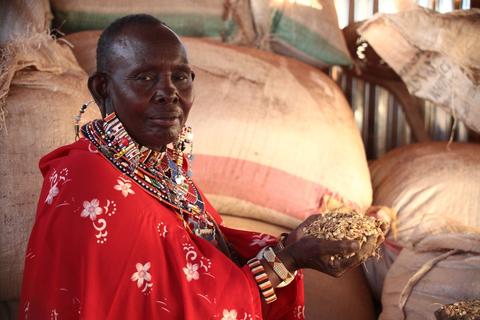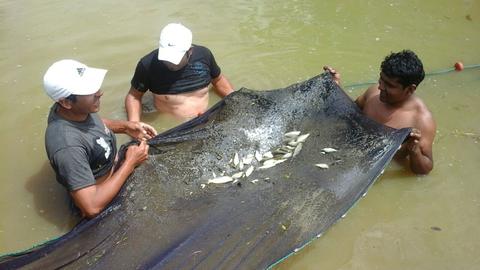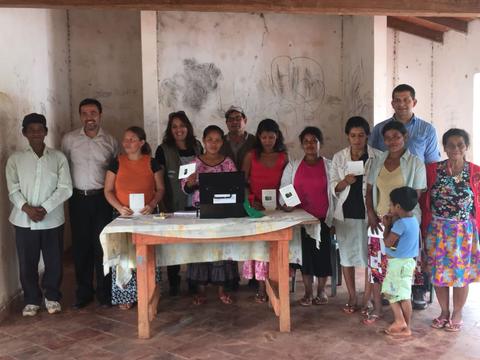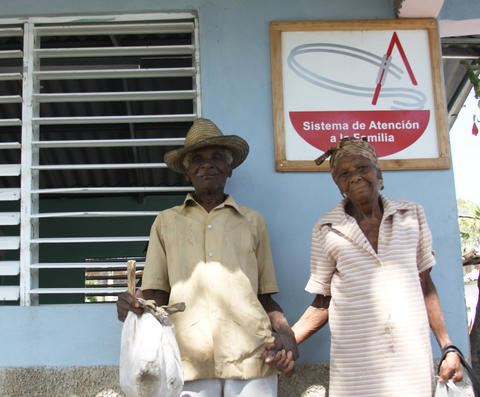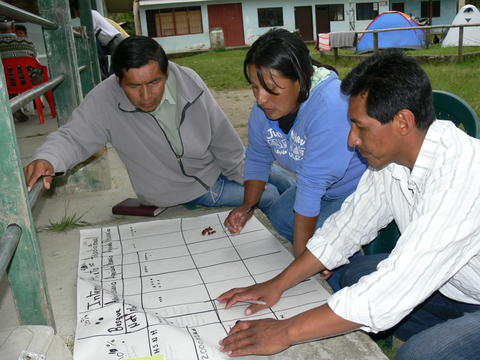Climate change is negatively impacting communities in the semiarid areas of Bolivia, where increasingly scarce rains and prolonged dry seasons are making it even more difficult for those in rural areas to access water needed for drinking, cooking and cultivating their fields.
In order to improve living conditions in the municipalities of Tupiza, Villazón (Potosí) and Pojo (Cochabamba), a programme by the Sustainable Development Goals Fund (SDG Fund) is promoting the construction of cisterns (tanks for storing water) so that 120 families can harvest rainwater. The cisterns are built on readily accessible technology, are low-cost and can be easily constructed. They allow for storage of 16.000 liters of drinking water, while for the purposes of production a total amount of 52.000 liters of water can be stored.
“In this community we used to bring water from the Candelaria mines,” said Don Maximiliano, the mayor of the community of Escorno. “With the water that we store in the cistern, we can water our lands. Before, we used to be able to produce many crops and fruits such as peaches and apples. We were able to produce almost anything. We are very grateful. We are but few in the community and most of us are elderly. Now we’ll have water to irrigate our fields.”
In Tupiza, Villazón and Pojo, there are communities that do not have access to the public water system because of their remote location and lack of nearby water sources. The cisterns allow for the harvesting and storage of water from remote sources, giving families a reliable source of water for personal consumption and use in the fields. This technology allows families access to water and is low-maintenance.
Bringing Water Directly to Families
Twelve communities have access to cisterns thanks to the programme, which is financed by Spanish Cooperation via its contributions to the SDG Fund, and implemented by UNICEF, the Food and Agriculture Organization (FAO) and the United Nations Industrial Development Organization (UNIDO). Seven cisterns have been installed in Pojo, two in Tupia, two in Villazon, and one in Pocona, Technical trainings have been provided to families throughout the area in order to allow them to scale up the initiative.
The cisterns are partially below ground, can capture and store water, and are made of prefabricated cement plates, which help ensure their structural integrity. They are enclosed, which helps avoid contamination or evaporation of water, while also helping maintain proper water temperature. The cisterns capture rainwater from the rooftops, where pipes direct water to the storage tanks.
By harvesting rainwater, families can utilize water resources more efficiently, improve their food security, and help prevent illness, including gastrointestinal diseases.
The programme and the SDGs
The SDG Fund’s joint programme is supported by the Government of Bolivia, and the programme’s main objective is improving chronic malnutrition in children under five who suffer from many health issues. Malnutrition is caused by factors related to poverty, including poor eating habits, lack of proper child care, and lack of access to health, water and sanitation services.
With the construction of tanks in these four municipalities, support is given to Objective 6 of Agenda 2030 for Sustainable Development: Ensuring water availability and sustainable management and sanitation for all.
Through the harvesting of water, families store rainwater in different geographic contexts, also contributing to Objective 4: to increase substantially the efficient use of water resources in all sectors and to ensure the sustainability of extraction and supply to cope with water scarcity and substantially reduce the number of people suffering from water scarcity.
Likewise, families access water in a self-sufficient way, achieving Goal 8, which is to support and strengthen the participation of local communities in improving water and sanitation management.
English translation by Raul Rios.

